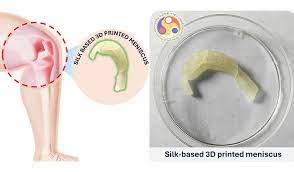Innovative Medicine Compound Could Offer Fitness Benefits Without Physical Activity
Washington D.C., USA – A team of researchers at the Washington University School of Medicine in St. Louis has unveiled a groundbreaking development in the field of exercise science—a medicine compound designed to replicate the benefits of exercise. Named SLU-PP-332, the compound, currently undergoing testing in rodent cells, has shown promise in mirroring exercise-induced enhancements in muscle cells’ metabolism, growth, and performance.
The potential implications of this discovery are profound, offering hope for individuals with hectic schedules, those unable to engage in regular exercise, or those facing challenges due to medical conditions such as muscle atrophy, heart failure, or neurodegenerative diseases.
According to the researchers, SLU-PP-332 has demonstrated the ability to activate specialised proteins called oestrogen-related receptors (ERRs), including the challenging target ERR-alpha. This activation mirrors the effects of exercise on muscle cells and holds potential for mitigating muscle loss induced by various factors, including certain medications.
Bahaa Elgendy, Professor of Anesthesiology at Washington University and principal investigator of the project, emphasized the importance of exercise while highlighting the need for alternatives in certain situations. “We cannot replace exercise; exercise is important on all levels,” Elgendy stated. “If I can exercise, I should go ahead and get physical activity. But there are so many cases in which a substitute is needed.”
The study, which involved the examination of approximately 15,000 genes in rat heart muscle cells, revealed that SLU-PP-332 induced a significant increase in RNA levels, indicating heightened gene expression associated with exercise-related benefits.
The potential of this exercise-mimicking compound to improve muscle health and performance without physical activity could revolutionize healthcare and wellness strategies, offering a lifeline to individuals unable to engage in regular exercise routines.
These groundbreaking findings will be presented at the ongoing spring meeting of the American Chemical Society (ACS), marking a significant milestone in the quest to harness the benefits of exercise through pharmaceutical innovation. As research progresses, the hope is to translate these discoveries into tangible treatment options that can enhance health and quality of life for individuals worldwide.











